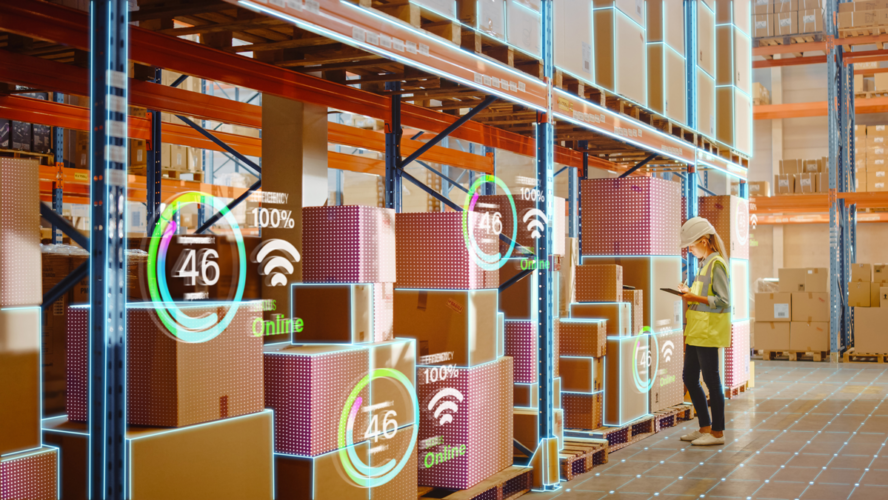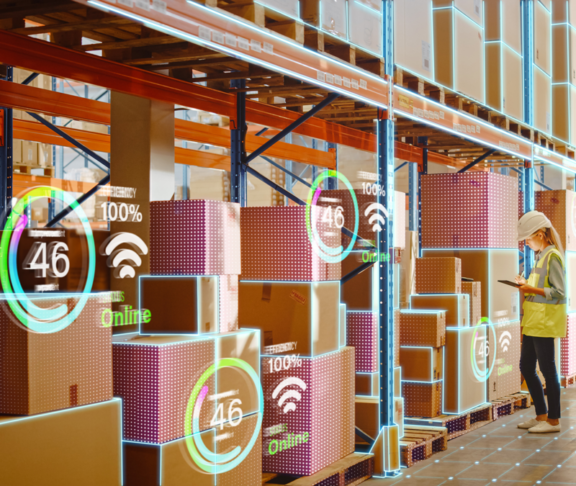
Clare Bottle
CEO, UK Warehousing Association
Learn about the future of warehousing and logistics, plus the impact of AI on operations and workforce empowerment.
The UK Warehousing Association launched a competition for students of warehousing and logistics to win an £800 bursary of vouchers. We were delighted by the response and calibre of submissions from students at universities across the country, with finalists hailing from Bath, Manchester Met and Warwick. Challenged to write about the future of warehousing, a common theme emerged: the role of AI.
Role of AI in warehousing
The winning entry posed the question, ‘When will the lights go out?’, asking whether AI was indeed the shape of the future, with robots operating in unlit, unheated, highly automated environments, independently of people.
The conclusion was that this was unlikely to happen, at least in our lifetimes. Rather, as I have discovered during my recent Year of Warehousing site visits to some of the sector’s most advanced operators, the vision is to ‘supercharge’ humans, not to replace them. While machines are fast and accurate, they don’t have the problem-solving skills of people or the ability to react to unforeseen circumstances.
People develop, program and maintain machines, but it’s more than that. Increasingly, we’re seeing people working alongside robots and cobots highly effectively in day-to-day operations.
People working with technology feel more empowered. The most tedious aspects are undertaken by machines, so job satisfaction is enhanced.
We’re seeing people working alongside robots and
cobots highly effectively in day-to-day operations.
AI collaboration to boost productivity
Karl Hodkinson at Howard Tenens confirms that the introduction of cobots at one of their warehouses had been met with initial scepticism by the workforce, but training and practical experience of working with ‘Chuck’ machines (each was named by workers) has transformed attitudes and increased efficiency and safety, delivering higher productivity.
AI will become the foundation for improving operations, as long as warehouse operators use it for what it does best.
AI-driven simulation improves outcomes
The next horizon for this technology is the wider use of AI-driven simulation. AI can identify ‘blind spots’ in existing processes, predict potential problems, plan for change without disruption to productivity and verify outcomes in site-specific scenarios.
This presents huge opportunities: helping warehouse operators avoid disruptions and informing decisions on using less energy, making better use of resources, taking care of workers or serving customers more efficiently.
AI in warehouse robotics can enable more consistent, efficient operations while allowing human employees to perform at their best.

